- Home
- Susan Hill
Mist in the Mirror Page 5
Mist in the Mirror Read online
Page 5
I began to feel a little more assured, and at ease with him, too; he was a man who invited confidence.
‘As I said in my letter to you some months ago, I understand that the school has papers, manuscripts, letters even, bequeathed in some way from the estate of Conrad Vane. He was a pupil, I know.’
‘He was.’
‘It would be of great help to me and great interest, if I might consult them.’
He sat, fingertips together. There was no one else in the room, and it was hushed, there were no voices or footsteps, only, at odd moments, the hiss and spurt of the fire.
‘I would be glad to hear more about you first, Mr Monmouth.’
Readily, easily, I began to speak, going back to those early days with my Guardian in Africa, re-living my young manhood and then re-visiting, one after another as I spoke, those countries in which I had travelled. My glass was refilled but I only sipped at the sweet wine, I was heady enough with memory and the excitement of recounting my story.
He listened without interruption, eyes for the most part steady on my face, and when at last I had finished, with my arrival in England on that wet night only a few weeks before, he did not speak for some time but looked away from me towards the fire to which a shambling, ancient servant in a baize apron now came, somewhat ineffectually, to attend.
When he had gone and the room had settled back into its church-like hush once more, Mr Votable said, ‘I must make it clear at once that there is no bar to your visiting the school and looking up whatever material there may be relating to your subject.’
I thanked him.
‘I did not wish merely to hand your letter over, and put the business out of my hands from the beginning. I wanted to meet you, Mr Monmouth, to hear what you had to say, discover what manner of man you are. You seem to me to be an honest one.’
For a moment, he had slipped into a schoolmaster’s tone.
‘What reason do you have for wanting to research into the life of – this man?’ I noted that he did not speak the name.
‘I have no more to add to my letter,’ I said. ‘I have followed in his footsteps for some years, I have read his own accounts of his extraordinary, pioneering travels and explorations. I became interested – for no clear reason that I can give you. But Vane exerts a peculiar fascination upon me – I suppose it has become an obsession, and something to fill what has been a life rather empty of people. Vane became a hero to me.’
‘You might find a better.’
‘I now gather from other sources that there are rumours of some … unpleasantness attaching to his life. A scandal?’
‘I think not in any usual sense.’
‘I have therefore become all the more intrigued.’
He said quietly, ‘Then I have no doubt that you will proceed, no matter what I may advise, and in spite of any admonitions. That is the way of human nature.’
‘But I am not reckless or stubborn, Mr Votable, and I would be glad to be told more. I would be grateful for your advice.’
‘Then I will give it. Be wary. Such stories – rumours maybe, as I have heard – relate to a time long ago. I had no connection with this man. I only know …’ He fell silent.
‘Sir?’
‘No. It is nothing. I will not frighten you with dead men’s tales.’
‘I am not easily made afraid.’
‘Be wary.’
‘But of what? Pray at least be clearer with me. Wary? Of some dreadful danger? What risk am I taking?’
‘No, no, no.’ He made to sound jovial, dismissive of my fears. ‘There is nothing … so definite, it will all be coincidence and idle talk.’
‘Then why make mention of it at all? Why warn me?’
He stood up. ‘Because you are honest, Mr Monmouth. Honest … and innocent.’
I left him on the steps of the building, an august, commanding figure. I imagined how a small, recalcitrant boy might feel, sent to stand quaking before him. He had given me an introduction to the school archivist and told me to make arrangements directly with him, once the term was over. There was a set of guest rooms, he said, which I would be welcome to make use of. I got the impression that he was wanting in some measure to retract his words of caution and the hints he had given of something untoward relating to Vane and his life. But it was curious that both he and Mr Beamish – and I trusted the purity of the Reverend Mr Votable’s motives more than those of the sinister little bookseller – had tried to warn me away from anything to do with him.
I had not travelled in countries where magic and superstition, legend and myth were powerful without learning to respect the human reaction to those things. Nevertheless, I fancied myself a sober, rational, level-headed man, able to separate reality from fancy, as well as anyone else of vaguely scientific bent.
I had liked Votable, I was grateful to him for his invitation and, for all it had been veiled in oblique warnings, I fully intended to take it up.
CHAPTER FIVE
The Athenaeum Club
Pall Mall
Dear Monmouth,
Further to our meeting and conversation. The school archivist is Dr V. V. Dancer. I have spoken to him and he will make available to you such material as is in our possession. If you would care to contact him he will make all necessary arrangements with regard to your visit.
On another matter, I recall your saying that you seek rooms in proximity to the river. By chance I have heard of some which may be suitable. They are at Number 7, Prickett’s Green, Chelsea, S.W. which houses are part of estates belonging to the School.
I have given much thought to the venture you wish to undertake and gone over most carefully in my mind such things as have been mentioned or hinted to me. They are not pleasant things, the man’s reputation was a dark one and in certain places unhappy memories linger. But if, as I suppose, you will not be deterred, then again I would urge you, be vigilant, be wary.
I shall not be available for several weeks from today, and would wish you to understand that I prefer to have no further interest in this matter.
Yours etc.
Archibald Votable.
I sat in silence beside the window of my room, the letter open before me on the table. In the dank inn yard below, I could hear the sound of water clattering into a bucket, and a curt order given by the landlord.
The Headmaster had not struck me as a weak man or one who would be easily unnerved but his letter betrayed his fears. He did not wish to have anything more to do with me and my enterprise, because he had spoken to someone about Vane, learned more, perhaps, than he had previously known, and what he had learned had made him afraid.
I was not deterred, but the warning made me pause, and for the first time consider the whole matter rather more seriously. Yet still I knew tantalisingly little. What was supposed to be the danger? What was I being warned against? What was the nature of the stories, rumours, hints, about Conrad Vane, a man some twenty years dead? I felt as if I were groping ahead through a fog, hearing odd whistles and low cries to me to look out, pay heed, but having no clue as to what I was to beware of or in which direction it might lie.
A dog yelped in the yard, yelped again and then fell abruptly silent.
And then, into my mind came a picture of my late Guardian, the man who had raised me from boyhood and helped to direct and mould my character. What would he have done? What advice would he give me now? I knew at once, and also knew without doubt that I would follow it. I would continue with my plans with caution, not dismissing the warnings I had been given, however vague, with any false bravado. My Guardian had been a courageous man and an adventurous one. He had also been prudent. I could do no better than try to emulate him.
In the meantime, I intended to call at Number 7, Prickett’s Green, S.W.
I found a row of three-storey, stuccoed houses set back behind their own rectangle of garden, with elm trees to either side, overlooking the wide embankment and the River Thames. It was a fine late afternoon, clear and already frosty
, the sun low to the west and staining the sky deep crimson and sending gilded darts shooting across the black surface of the water.
I had walked the whole way, keeping the river on my left and revelling in the complementary beauties of sky and river, bare trees and handsome buildings.
Further east the road was busy with traffic, but as I came up to Chelsea it grew quieter. Many times I stopped to lean against the embankment wall and look up and down river, enthralled by all I saw upon it, and then turned to stare at the houses, to admire the elegant proportions, the pleasing roof lines. London, I thought to myself, aware of how deeply I was growing to love it. London.
Above my head, the sky was translucent as enamel. I was a contented man that afternoon.
Number 7, Prickett’s Green was at the end of the small row, looking west. Next to it, on the other side of the elm trees, the houses of Cheyne Walk continued.
There was something a little out of sorts about the house. The paint was beginning to peel, the windowpanes were filmed over and altogether the row had been neglected by contrast with its fashionable neighbours, but the shabbiness was oddly reassuring to me and I was in no sense deterred from exploring further. I stood with my back to the river on the far side of the road. The houses were in shadow now, the windows black, vacant eyes, whereas in others, lights shone out from lamps and chandeliers, curtains were draped elegantly back, and thinking of the people in those rooms and of the warm fires, conviviality and comfort, I felt a wave of loneliness and bleakness of spirit rise and break over me, so that I shuddered and hunched down more deeply into the collar of my overcoat. It lasted only a few seconds but it disturbed my serenity of mood and left me uneasy again, and, above all, longing for a companion.
I hurried across the road, and unlatched the low iron gate that let me into the gardens of Prickett’s Green.
A note had come from the bursar of the school, giving me directions to the house, and the name of Mr Silas Threadgold, the caretaker, who would admit me. But, for some time after I had twice pulled the bell and it had jangled thinly in some distant passage, there was complete silence, and as the house was in darkness and had that indefinably melancholy air suggestive of emptiness, I was about to turn away, thinking, perhaps, of investigating a back entrance, but pulled the bell once more and was answered at last by an irritable voice calling out to me to have patience and heard footsteps dragging along a stone floor.
It was impossible to guess the exact age of Mr Silas Threadgold, who might have been anywhere between fifty and ninety. He was thin, gnarled and twisted in upon himself like an ancient tree, with a bent back, dirty linen and a greasy coat. He opened the front door to me and stood back without a word, so that after a pause I was obliged to take the gesture as an invitation and stepped inside the hall. It was unlit but he turned, still without speaking, and limped ahead of me, and at the foot of the old staircase turned up the gas, which gave some dim illumination to our ascent.
On the first landing, through a narrow window, I looked out at the sky burning down in the last of its glory, ‘red as any blood’.
The boards were bare and sounded loudly to our tread. All the doors we passed were closed.
‘I take it the house is empty,’ I said, pausing to get my breath.
‘Always excepting the basement.’
‘In which you live?’
He nodded but did not otherwise reply, and then unlocked a door and, grunting slightly, stood back to let me pass through. As I did so I was unable to restrain my exclamation of surprise and pleasure.
The room extended the whole length of the house, some thirty feet or so, and with three sets of tall windows. I stepped over to them. Below lay the river, almost completely dark now, but still just flushed over its surface by the last light from the sky. And as I looked the lamps began to come on one by one along the embankment and their light formed pools of gold on the river below and made oases on the pathway.
I was on a level with the tree tops that stood to my left and through the black branches I saw the bridge, strung out to the opposite bank, across the water. It was to me as glorious an outlook as I had ever dreamed of, the rooms were perfect for this reason alone and I knew that I would take them no matter what – though they were more than adequately furnished, if shabby, and I could buy any small extra comforts at will. Apart from the main sitting room there were three other, utilitarian rooms, including a small dressing room that also overlooked the river and in which I resolved that I would sleep.
Threadgold had disappeared, clumping off down the stairs without a word to me. I heard a door bang somewhere far below.
I resolved to write to the school, accepting the offer of the rooms, and already planned to move my things out of the Cross Keys Inn, if possible, the following day, for in spite of the emptiness of the remainder of the house, and the unattractiveness of its caretaker, I knew that I could be settled at last; Number 7, Prickett’s Green would be a home to me.
I went back to the window, and saw that the light had now completely faded from the sky.
And then I knew that, when I looked downwards, I should see him, and knew precisely where he would be, huddled close under a lamp. I felt my skin prickle, as though every one of my senses had become more acute. I waited. The house was deathly quiet.
I was not afraid, not on this occasion, though I began to be agitated. More than anything, I felt a sadness and some strange, close affinity with the boy.
Why I had realised the truth at this moment, I did not understand, but I accepted it at once, and was in no doubt, although nothing like it had happened to me in my life, and I knew precious little about such matters.
He stood, pale, ragged, utterly still in the circle of lamplight and as I stared directly at him he raised his head, turned his face up to me, his eyes seeking mine out. And so we stayed, as if frozen in some other time and place, I, James Monmouth, in the dark, upper room of the house, and the ghost of the boy in the cold street below.
And then I did become afraid, with a strange, very calm fear that so chilled me as almost to stop my blood in its course. I was bewildered too and yet still drawn to him as by an invisible beam of almighty strength. The look he gave me was so full of anguish and misery, of desperation and pleading, and of a sort of blame, too, so that I felt not angry and irritated with him as before but deeply guilty, as though I had known and betrayed him. I knew that there was no earthly point in my leaving the window and the house and running down the path and over to him, for when I reached the lamp he would certainly be gone. I could say nothing, ask nothing. Yet there was something I should surely do for him, his appearances meant as much, I was certain. But what? How? And how might I discover?
Lights from a barge, moving down river, sparkled on the water. I followed it out of sight and then brought my gaze slowly back. But he had stepped out of the bright ring, and was gone.
I bent my head for a second and closed my eyes, and most earnestly and urgently prayed for guidance and protection.
Two days later I had arranged for my trunks to be collected from the shipping company’s warehouse and moved out from the Cross Keys Inn – from where I was bade the most cursory of farewells – and into the rooms at Number 7, Prickett’s Green. Within a few days I had purchased some extra pieces of furniture and linen, arranged with Silas Threadgold to have breakfast brought up each morning and found a good coffee house half a mile’s walk away, where I could eat my evening dinner. The weather continued cold, bright and clear and my spirits remained high.
I did not see the boy again and indeed, with some curious extra sense I seemed to be developing, knew that I would not. All was open, cheerful and unremarkable. I was too busy about my domestic matters to think much at all of Conrad Vane but I planned to settle myself and then to travel down to the school and spend some days there, making a start on my work.
I acquired a desk and chair which I placed in one window and a wing armchair which I drew close up to another and, seated at one or othe
r of them, I spent many hours during those first days simply watching the river, its traffic, the play of the sun and shadow upon the water, the movement of the tides. I paid less attention to the passers-by along the embankment but in them too was a measure of diversion and interest, so that I never tired of the scene.
The rest of the house was, I still supposed, empty – at least I saw no one other than the lugubrious Threadgold. Whether he had a wife, or any other companion, in the basement I did not enquire.
I had slept remarkably well right through every night, waking each morning as the dawn came up, well after seven o’clock, and going at once to look out upon the river and the sky above it and to await the arrival of breakfast, which I ate also at the window.
But on the fifth night I came wide awake abruptly, long before morning, and, being somewhat cold, got up at once, thinking of finding extra covering for my bed.
I had left the curtains undrawn as usual, and the light of the moon shone in, slanting silver across the floor. I went to the window. The lamps were out but the moonlight lay over the water, still and beautiful, and as I watched, some small, dark craft slipped across its path and was illumined by it, before blending back into the shadows again.
Cold as I was I could not bear to return to my bed, but stood for some while looking with deep satisfaction at all I saw. And then I heard a woman singing. The sound seemed to come from somewhere distant, perhaps far below in the house, I could not be sure. It was a soft, low, sad, murmuring voice, a little like that of one crooning a child to sleep, or else keening faintly, absorbed in distress.
I strained to hear it more clearly but could not and at last went to the outer door and opened it. Landing and stairs were in darkness and there was complete silence. There was no one at all below, I was quite sure, I heard not a creak of the boards, not a breath upon the musty air. I thought momentarily of creeping down and stopping to listen at each door, but in the end only returned to my room. There, as I became still, I again heard the woman’s voice, and then I was a little afraid, but the voice awakened something else in me, some deep longing, some memory so dim and far back that it was unrecognisable, indecipherable.

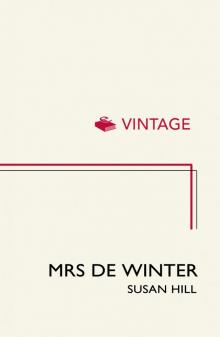 Mrs De Winter
Mrs De Winter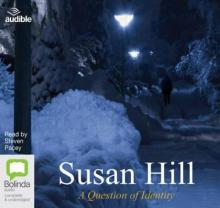 A Question of Identity
A Question of Identity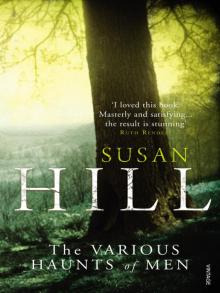 The Various Haunts of Men
The Various Haunts of Men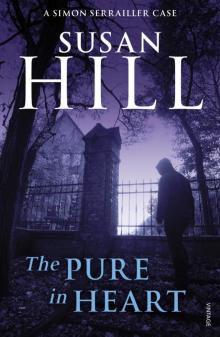 The Pure in Heart
The Pure in Heart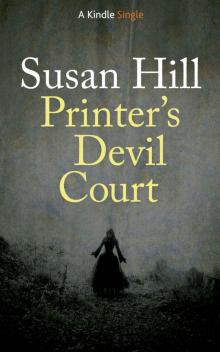 Printer's Devil Court
Printer's Devil Court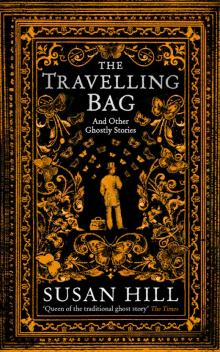 The Travelling Bag
The Travelling Bag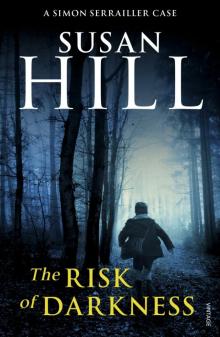 The Risk of Darkness
The Risk of Darkness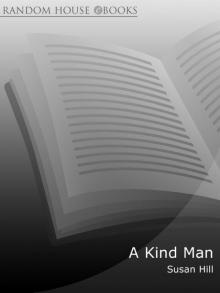 A Kind Man
A Kind Man Black Sheep
Black Sheep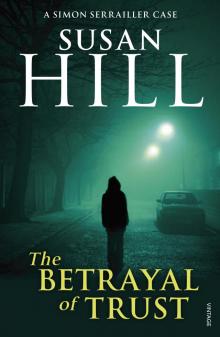 The Betrayal of Trust
The Betrayal of Trust The Service of Clouds
The Service of Clouds Betrayal of Trust
Betrayal of Trust The Small Hand
The Small Hand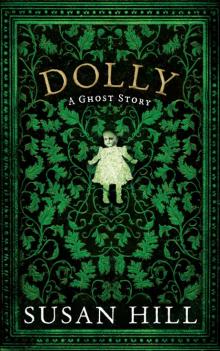 Dolly
Dolly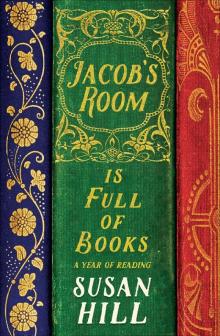 Jacob's Room Is Full of Books: A Year of Reading
Jacob's Room Is Full of Books: A Year of Reading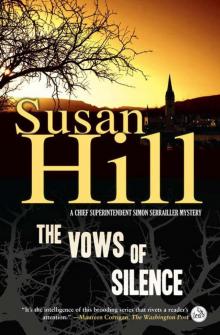 The Vows of Silence
The Vows of Silence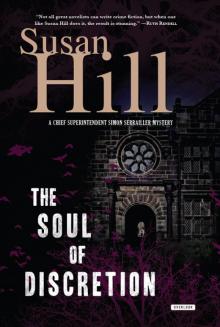 The Soul of Discretion
The Soul of Discretion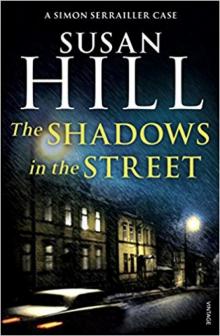 The Shadows in the Street
The Shadows in the Street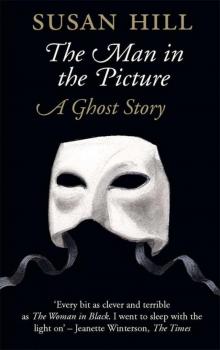 The Man in the Picture
The Man in the Picture Air and Angels
Air and Angels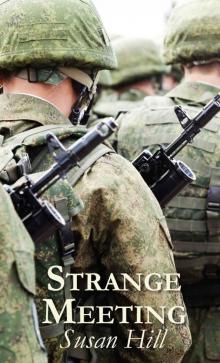 Strange Meeting
Strange Meeting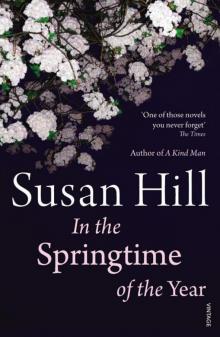 In the Springtime of the Year
In the Springtime of the Year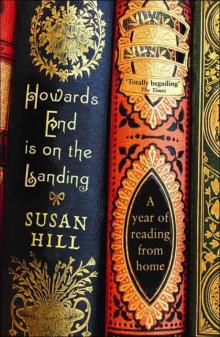 Howards End Is on the Landing: A Year of Reading From Home
Howards End Is on the Landing: A Year of Reading From Home From the Heart
From the Heart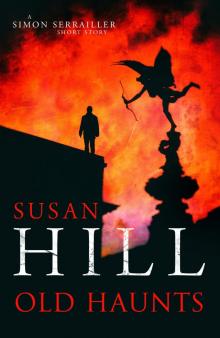 Old Haunts
Old Haunts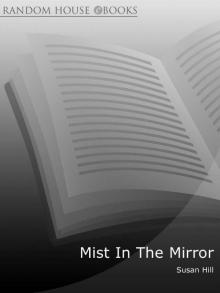 The Mist in the Mirror
The Mist in the Mirror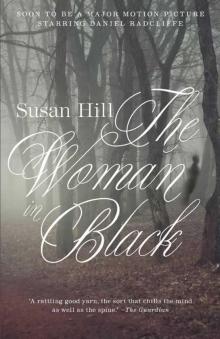 The Woman in Black: A Ghost Story
The Woman in Black: A Ghost Story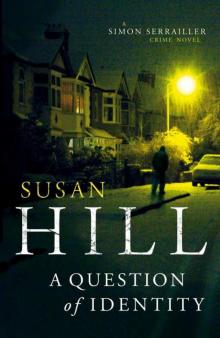 A Question of Identity (Simon Serrailler 7)
A Question of Identity (Simon Serrailler 7)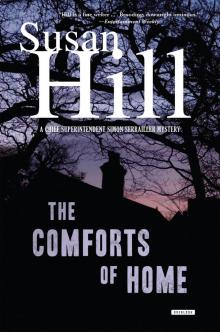 The Comforts of Home
The Comforts of Home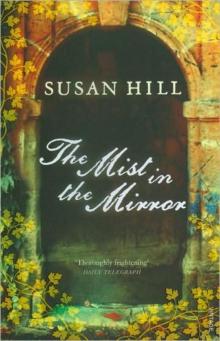 Mist in the Mirror
Mist in the Mirror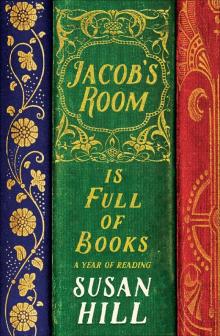 Jacob's Room is Full of Books
Jacob's Room is Full of Books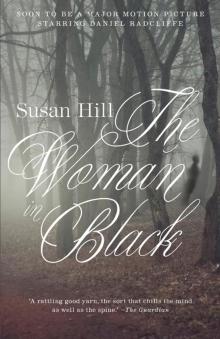 The Woman in Black
The Woman in Black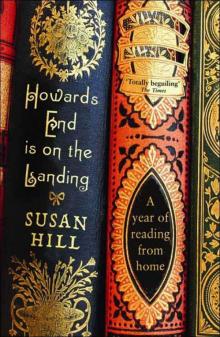 Howards End is on the Landing
Howards End is on the Landing